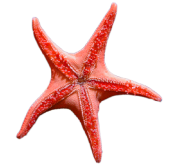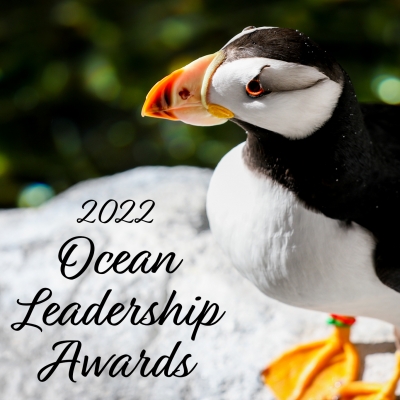2022 Alaska Ocean Leadership Award Recipients March 29, 2022
The Alaska SeaLife Center is pleased to announce the recipients of the 2022 Alaska Ocean Leadership Awards. These awards are given annually to individuals and organizations that have made significant contributions to the awareness and sustainability of the state’s marine resources. The Alaska SeaLife Center appreciates the support provided by the award sponsors and thanks the awards committee members (Jason Brune, Ginny Eckert, Dale Hoffman, Molly McCammon, Lynn Palensky, Robert Suydam) for their assistance in selecting the award recipients. These awards will be presented at a virtual event on March 31.
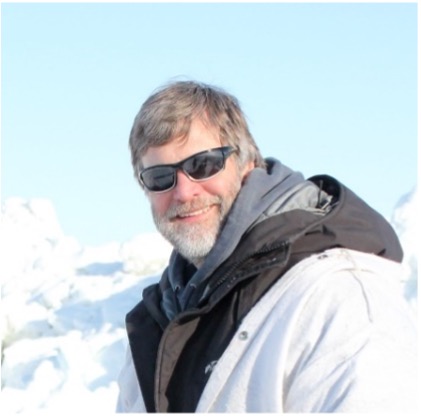
Dr. Robert Suydam, Ph.D., will receive the prestigious Walter J. and Ermalee Hickel Lifetime Achievement Award. The late Governor Walter J. Hickel and the late Ermalee Hickel endowed this award for 10 years to recognize individuals who have made exceptional contributions to the management of Alaska’s coastal and ocean resources for more than 20 years. Senior Wildlife Biologist Dr. Robert Suydam’s three decades of research on bowhead and beluga whales as well as his deep involvement with co-management and Alaska Native organizations represents a truly exceptional contribution to the management and science of Alaska’s marine mammal resources. Robert has published well over 200 peer-reviewed papers and technical reports throughout his tenure at the North Slope Borough Department of Wildlife Management on a wide range of species and topics. In addition, he has served on multiple advisory panels and boards that have greatly advanced understanding of the Arctic and Sub-Arctic marine environment, including Science Advisor to the US Marine Mammal Commission, member of the National Research Council, Fellow of the Arctic Institute of North American, member of the Alaska Beluga Whale Committee, advisor to the Alaska Eskimo Whaling Commission, and member of the International Whaling Commission Scientific Committee. Moreover, Robert has worked closely with the oil and gas industry in Alaska to ensure that the implementation of sound science-driven policies related to offshore exploration and development facilitated the protections of the arctic environment and fauna potentially impacted by development. One of Robert’s more important and unique achievements has been his long and consistent involvement advancing the use of traditional knowledge in scientific research and management. Robert has been a strong and articulate advocate for Alaskan Native subsistence rights to harvest marine mammals and feed their communities with traditional foods and for high-quality arctic marine science and has worked with North Slope Borough, Alaskan Native, state, federal, and international organizations to ensure that sound science is used to develop marine policy.
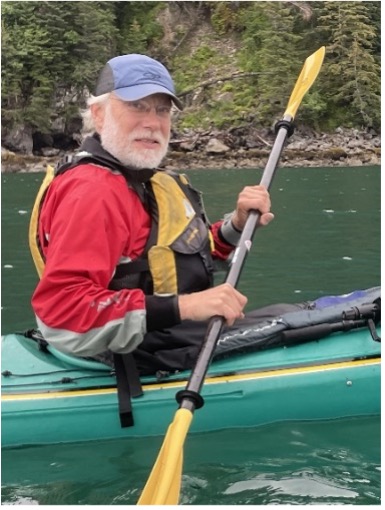
Jim Pfeiffenberger will receive the Marine Science Outreach Award. This award is given to a person, team or organization that has made an outstanding contribution to ocean literacy via formal or informal education, media, or other communications. It is sponsored by the Alaska Ocean Observing System. National Park Service Education Coordinator Jim Pfeiffenberger has done an extraordinary job connecting students and adults of all ages to the wonders, mysteries, challenges, science, and stewardship of Alaska’s marine and coastal ecosystems. From teaching in classrooms located in remote or rural Alaska communities, in-person programs along coastlines or from ships, to virtual and online platforms when the need arose, Jim has embraced every opportunity to connect students to the marine environment, the science that helps to inform its stewardship, management and protection, as well as doing the hard work of cleaning it up. Jim has designed innovative and engaging media that has connected people to Alaska’s eleven coastal parks and their diverse and critically important resources. He has thrived working as the Education Coordinator for the Ocean Alaska Science and Learning Center, co-located at Kenai Fjords National Park. Jim has made marine science, ecosystems, and stewardship relevant, meaningful and inspiring for students from K – 12 and beyond, including mentoring college students completing media development internships focused on the work, management, and stewardship of Alaska’s coastal parks and partners. Jim’s professional delivery of education in the field of marine science and outreach has been transformational—shifting the first impressions of students, teachers, and visitors into knowledge and ultimately, into care.
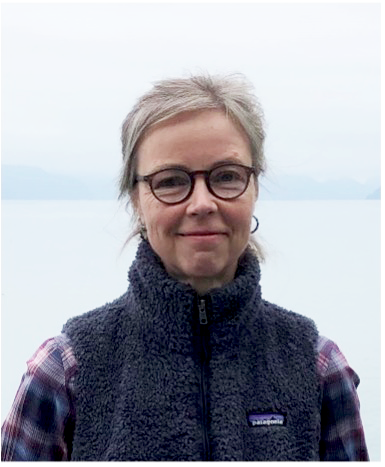
Dr. Tuula Hollmén, D.V.M., Ph.D., will receive the Marine Research Award. This award is sponsored by Drs. Clarence Pautzke and Maureen McCrea. This honor is given to a scientist, team of scientists, or an institution that is acknowledged by peers to have made an original breakthrough contribution to any field of scientific knowledge about Alaska’s oceans. Dr. Hollmén’s career reflects three decades of work on seabird ecology and epidemiology, including twenty years of focus on the threatened Steller’s eider. She applies her veterinary and biology training to a broad portfolio of fieldwork, laboratory analysis, modeling, and teaching. She currently holds positions as a Senior Research Scientist at the Alaska SeaLife Center and as a Research Associate Professor at the College of Fisheries and Ocean Science and the Center for One Health Research at the University of Alaska Fairbanks. She served as the Science Director at the Alaska SeaLife Center (2010-2015) as well as the Eider Program Manager (2002-2020). She is a member of the U.S. Fish and Wildlife Service’s Spectacled and Steller's eider recovery teams, and was the chair for the Steller’s Eider reintroduction committee. She also found time to sit on the North Pacific Research Board Science Panel from 2011 to 2019, serving as Vice Chair from 2014 to 2019. Dr. Hollmén and her team successfully established a captive breeding flock of endangered Steller's eiders at the ASLC to serve as one of the main routes for potential re-introduction of to the wild. Prior to Dr. Hollmén's research at ASLC, Steller’s eiders had never successfully bred in captivity in North America. Most recently, her research has provided groundbreaking insights to the impacts of climate change on Arctic lagoons with real-time implications for marine species conservation efforts.
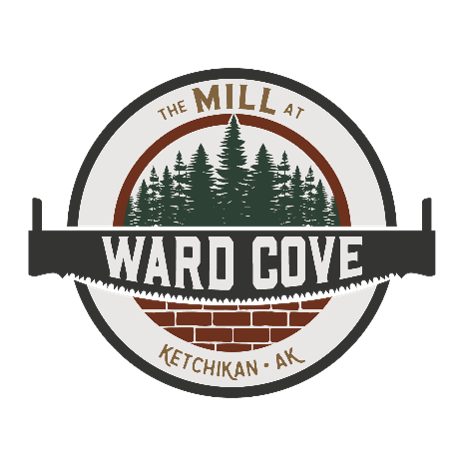
Ward Cove Dock Group and Norwegian Cruise Line will jointly receivethe Stewardship and Sustainability Award. This award is sponsored by Jason Brune, and honors an industry leader that demonstrates the highest commitment to sustainability of ocean resources. The Mill at Ward Cove is a partnership between Ward Cove Dock Group, LLC and Norwegian Cruise Line Holdings Ltd. that has built a two-berth, floating cruise ship dock and corresponding Welcome Center and Passenger Transit Facility in Ward Cove, near Ketchikan. When the Ketchikan Pulp Mill closed, Ward Cove was found to be contaminated with fuels, paints, and heavy metals as well as large quantities of sunken longs which affected the health of all local marine life. Ward Cove was then declared a Superfund site under the Comprehensive Environmental Response, Compensation, and Liability Act and was remediated with institutional controls under the oversight of the Environmental Protection Agency and the Alaska Department of Environmental Conservation. Under the leadership of John Binkley and Dave Spokely, a plan was created to responsibly repurpose this area, which resulted in an innovative design and construction of the largest cruise ship dock in Alaska. This project has transitioned a decaying brownfield site into a place the community takes pride in once again. The advanced design of the dock required fewer pilings to be drilled into the ocean floor, reducing impact on the sand cap. Additionally, the unique construction techniques preserved the sensitive marine environment. Today, with ongoing monitoring, the marine life is thriving in Ward Cove, and Ward Cove Dock Group is committed to preserving this sensitive environment into the future.
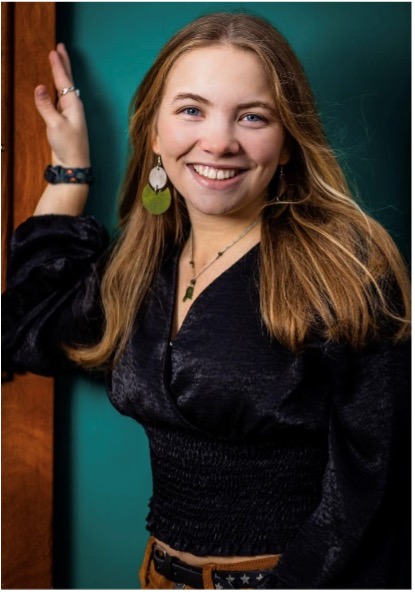
Elin Antaya will receive the Hoffman-Greene Ocean Youth Award. The Ocean Youth Award is awarded to an individual or team of Alaskan youth up to 19 years old who has displayed a dedication to promoting the understanding and stewardship of Alaska’s oceans. Juneau Douglas High School Senior Elin Antaya cares about our planet and ocean. Elin is currently working in a University of Alaska Fairbanks (UAF) laboratory in Juneau helping to support research on harmful algal blooms and ocean acidification monitoring. Elin is a 4.0 student and has participated in the National Ocean Sciences Bowl all four years of high school. Last summer she held a Hutton Junior Fisheries Biology Program Internship funded by the American Fisheries Society where she worked closely with graduate students and faculty from the UAF conducting field and laboratory research. Elin collects old buoys and repurposes them with Alaskan ocean themed art, with the motivation to share Alaska’s diverse marine habitats and honor the diverse fishers and vessels who navigate and enjoy the bounty of our oceans. Elin not only expands on her own scientific knowledge, but also has a vested interest in public scientific education and shows understanding and ability to disseminate complex ecological processes. She has co-published opinion articles in the Juneau Empire and Pacific Fishing explaining the roles that sea otters play in marine ecosystems. Whether she is leading squid dissections with elementary students, saving halibut heads for otolith removal, or picking up workdays at the local oyster farm, Elin continues to share the intrigue of marine organisms with the next generation of researchers. She has applied for and been accepted to many outstanding universities including UAF, Colorado College, UC San Diego, Hawaii Pacific, Quest and Cal Poly Humboldt to study ocean and marine science to continue her desire to be find solutions for the future health of our marine environments. Elin is also an elite dancer, president of the Nordic Club, member of the National Honor Society, and an employee of Salty Lady Seafood Co.
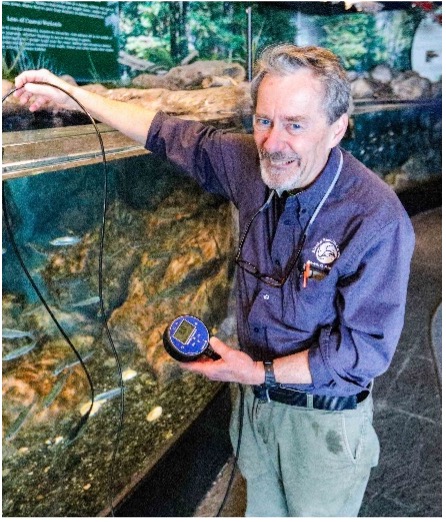
Richard Hocking is this year’s recipient of the Ocean Ambassador Award. The Ocean Ambassador Award recognizes an individual or organization that has made outstanding contributions in promoting public awareness and appreciation of Alaska’s oceans, coasts, and marine ecosystems. Richard’s passion for the ocean defined his work and his life. He spent 45 years working in the marine science field, beginning with the Seattle Aquarium, Point Defiance Zoo and Aquarium, and the Alaska SeaLife Center. Richard served as the Center’s Aquarium Curator from 1998 until his passing in November 2021. Richard was known as one of the most hands-on curators in the building, including designing exhibits, checking water quality, managing permits, and diving for collection trips, all while leading the Aquarium Division for twenty-three years. Richard became widely known as ASLC’s resident nutritionist, and he understood the intricate diets of animals ranging from the smallest sea star to the largest Steller sea lions. His knowledge of marine animal biology and husbandry was unmatched. He co-authored papers ranging trophically from monogenean fish parasites to centuries-old elasmobranchs, and is a widely acknowledged contributor to dozens of research publications and projects. Richard sought out and promoted opportunities for ASLC staff to take part in professional growth opportunities, ensuring that ASLC’s animal care teams remained highly skilled. One of the many activities Richard led was the monitoring for marine aquatic invasive species in Resurrection Bay. Since 2009, Richard has guided ASLC staff and interns in evaluating the health of the bay by surveying the habitat year-round for European green crab, tunicates, and other invasive species and sharing these findings with the Invasive Species Program at the Alaska Department of Fish and Game. Richard lent his expertise to marine-oriented organizations and activities in the Seward area, including the Alutiiq Pride Shellfish Hatchery and the Seward Chamber of Commerce Seward Silver Salmon Derby, where he served as the expert fish authority, placing his verification stamp on the winning salmon each year. He strived to educate and motivate the next generation of ocean stewards by assisting in the Center’s after-school Ocean Sciences Club, as a judge during the Alaska National Ocean Sciences Bowl, as a graduate committee member for Alaska Pacific University graduate students, and as an unofficial advisor for every scientist that worked at ASLC. Richard manifested a lifelong stewardship for the ocean and its inhabitants that he expressed through a lifetime of daily acts of service. Richard leaves a legacy of a life led by example, motivated by an enduring belief that ocean life could be used to convey the extraordinary richness of biological diversity, and further, that knowledge of the oceans could be used to spark wonder and inspire others to action.

